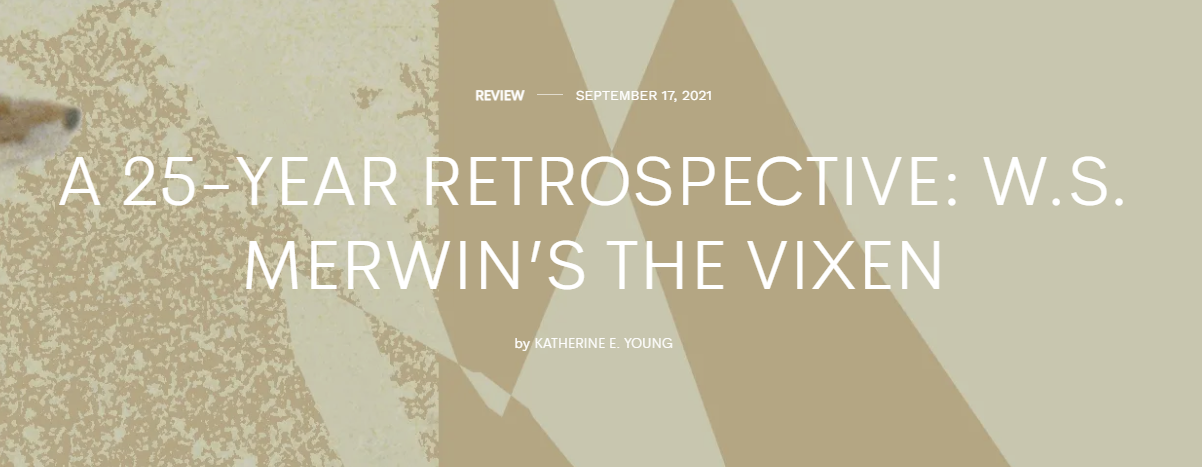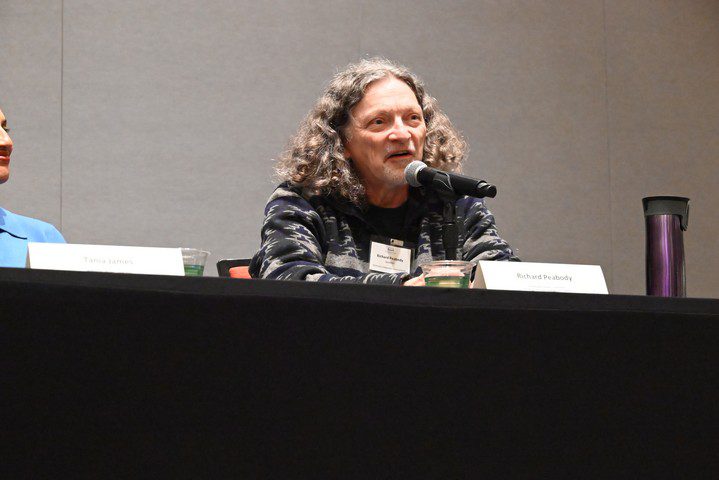Katherine E. Young Reviews Merwin's THE VIXEN for 25 Year Anniversary
25 years after it was originally published, Katherine E. Young looks back on one of Merwin's most underappreciated masterworks

Katherine E. Young's retrospective on W.S. Merwin's The Vixen appears in The Adroit Journal. Her newest collection of poetry is Woman Drinking Absinthe available from Alan Squire Publishing. An excerpt from her essay follows. Read the full review HERE.
Is there such a thing as too much good poetry? My uncle, who made a lifelong habit of sending me copies of each of W.S. Merwin’s books upon publication, thought so. “He writes too much,” my uncle would lament each year when the Nobel Prize for Literature, one of the few major prizes to elude Merwin during his long literary career, was awarded to some other writer. In a career as prolific as Merwin’s—more than fifty books of poetry, prose, and translation, including multiple literary masterpieces—it stands to reason that not every book can be a great one. Right?
Consider Merwin’s 1996 collection, The Vixen. Coming on the heels of Travels: Poems, winner of the 1993 Lenore Marshall Poetry Prize, The Vixen is in many ways a quiet book. While the poems in Travels are set all over the globe and vary considerably in form, length, and even appearance on the page, the sixty-four poems in The Vixen, most of them no longer than a page, follow a single form: a long line that starts at the left margin, followed by a second, indented line (which is sometimes enjambed and sometimes syntactically independent of the preceding line), mimicking the appearance of call-and-response on the printed page. (In his original review of the book for Boston Review, poet and critic Richard Howard called it “one poem in 64 sections.”) The look of the poems is neat, tight, controlled. “Quiet” and “controlled” are not synonymous with “lesser,” of course, and for anyone seeking poems that nourish and challenge, The Vixen offers a rich bounty.
Issue 9 of The ASP Bulletin & Writer Accomplishments
This past week, Alan Squire Publishing released the newest edition of our literary magazine: Issue 9 of The ASP Bulletin. As always, we included stirring poetry, thought-provoking nonfiction, and compelling […]
ASP at Booth 3018, AWP 2024
There’s less than a month left until the AWP 2024 conference in Kansas City, Missouri. As you decide what panels you’ll attend, where you’ll wander in the bookfair, and what […]
A Hometown Launch for Already Gone
Celebrations for the launch of Already Gone: 40 Stories of Running Away continued in Bethesda over the weekend. Editor Hannah Grieco and contributors Matt Barrett, DeMisty D. Bellinger, Michael B. […]


